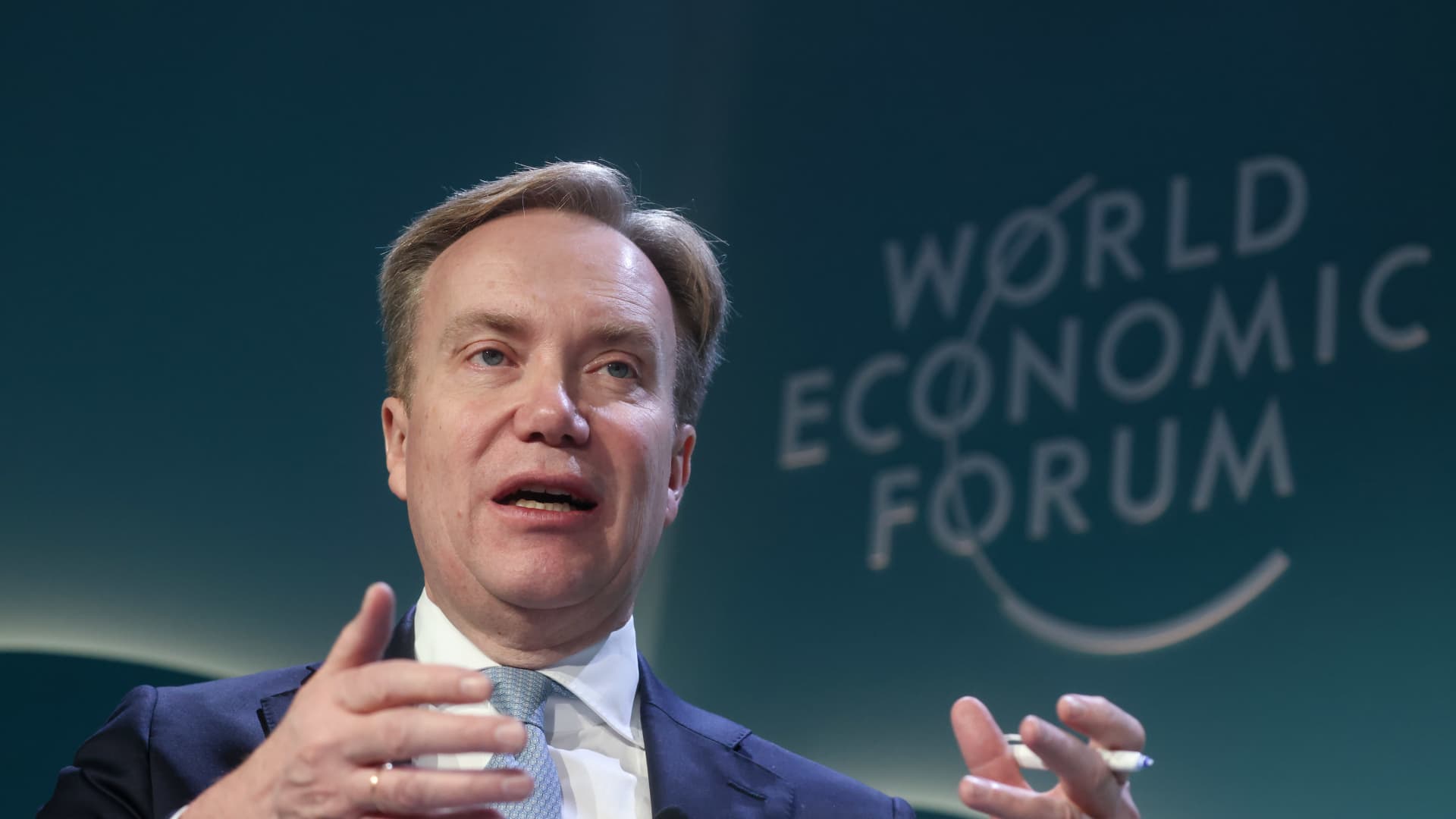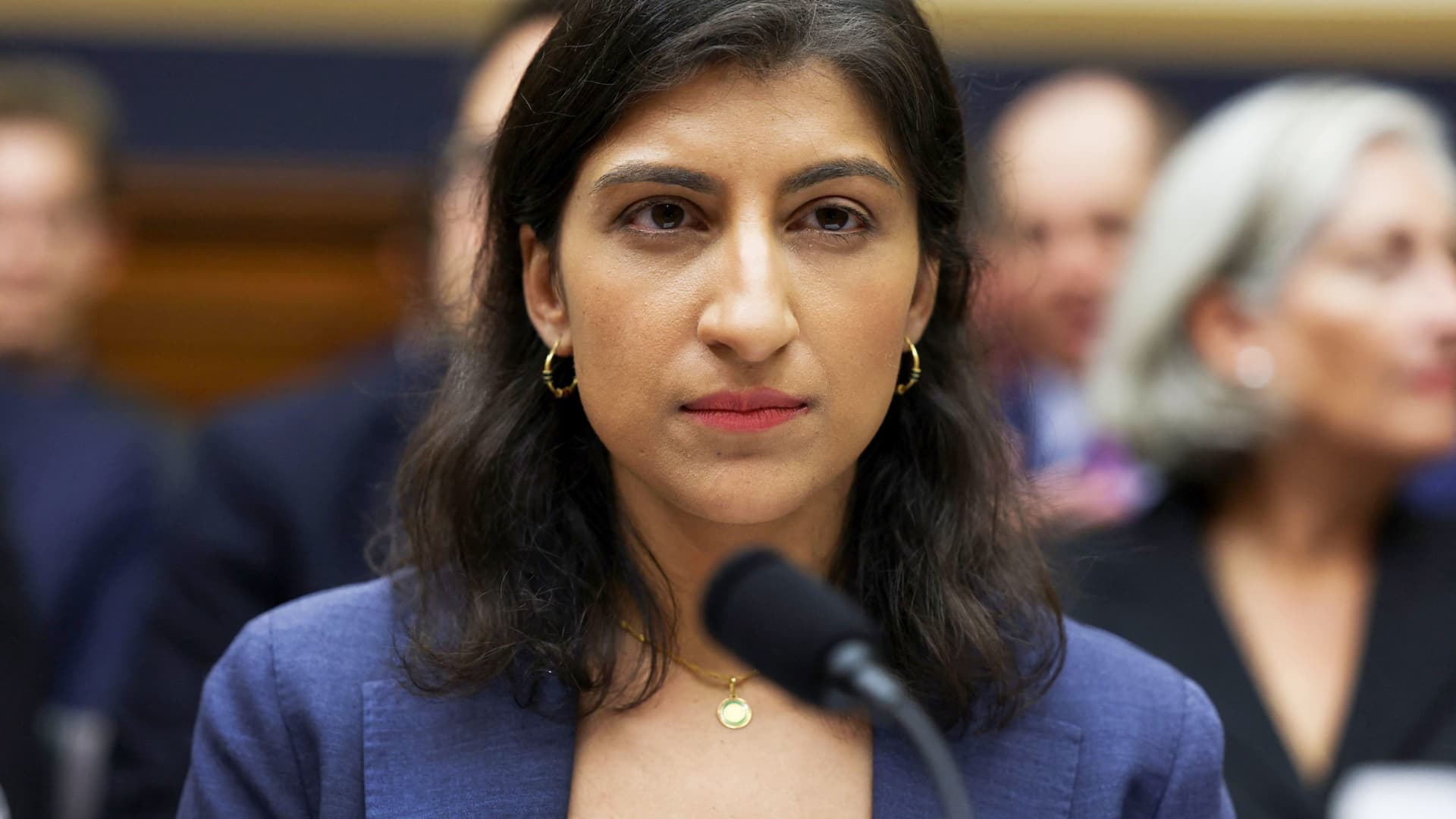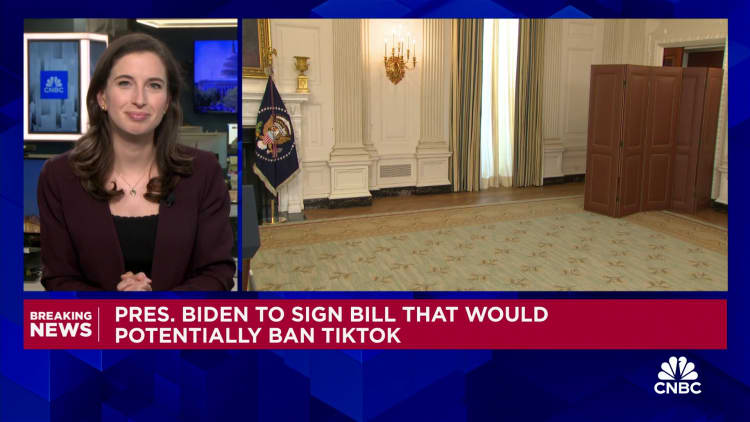Residents wait at a bus stop under a large Turkish flag in Istanbul, Turkey, on Sunday, April 30, 2023.
Bloomberg | Bloomberg | Getty Images
The Turkish central bank raised its key interest rate by another 250 basis points to 45% on Thursday.
The increase in the one-week reference repo rate was in line with economists’ expectations.
This comes amid an ongoing battle by Turkish monetary policymakers against double-digit inflation, with the rate hike being the latest step in that effort.
Inflation in Turkey rose to 64.8% year-on-year in December, compared to 62% in November, and the local currency, the lira, hit a new record low against the US dollar in early January, breaking through the 30-point mark for the greenback for the first time.
Analysts expect this to be the last increase for some time, especially with local elections approaching in March.
“Encouragingly, the messaging was relatively hawkish and suggests that policymakers recognize the need to keep interest rates high for an extended period of time if they are to be successful in bringing inflation back to single digits,” said Liam Peach, senior emerging markets economist in London. resident Capital Economics wrote in a note. “We fundamentally expect the central bank to keep interest rates unchanged throughout the year.”
The Central Bank of the Republic of Turkey itself signaled that this was likely the end of the tightening cycle, saying of its decision: “The monetary tightening necessary to set the inflation path has been achieved… The current level of the key interest rate will be maintained until the underlying “The underlying trend in monthly inflation is declining significantly and inflation expectations are moving closer to the forecast range.”
The central bank’s move is the latest in a series of interest rate hikes – now eight consecutive hikes since the May 2023 elections – that have been painful for Turks as the country grapples with a dramatically weakened currency and skyrocketing living costs.
Turkish Central Bank Governor Hafize Gaye Erkan answers questions during a press conference on Inflation Report 2023-III on July 27, 2023 in Ankara, Turkey.
Anadolu Agency | Anadolu Agency | Getty Images
The high inflation of recent years is largely the result of the Ankara government’s stubbornly loose monetary policy. The lira has fallen 38% against the dollar since the start of the year and has lost more than 80% of its value against the greenback over the past five years.
In June last year, a new finance team was appointed and the Turkish central bank made a drastic policy change and raised interest rates under the supervision of the Turkish central bank governor, Hafize Erkan. The country’s key interest rate has now been raised from 8.5% to 45%.
However, some observers still do not believe this is enough to effectively reduce inflation.
Capital Economics expects inflation in Turkey to fall from the current 65% “to 30-35% by the end of the year”, while Bartosz Sawicki, market analyst at Conotoxia Fintech, expects it to reach almost 75% in May, before it starts to sink.
“The cumulative 3,650 basis point tightening may not be enough to significantly tame Turkey’s long-standing inflation problem,” Sawicki said, which he said was caused by “a vicious mix of loose monetary policy, sharply negative real interest rates and persistent lira.” Weakness.”
Broadly speaking, analysts expect the central bank to hold interest rates on hold for the rest of the year – and not cut rates any time soon.
“Inflation and inflation expectations must be well down before the central bank starts cutting interest rates,” Peach wrote.
Source link
2024-01-25 12:25:44
www.cnbc.com










